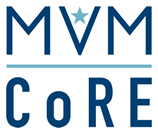Attention A T users. To access the menus on this page please perform the following steps.
1. Please switch auto forms mode to off.
2. Hit enter to expand a main menu option (Health, Benefits, etc).
3. To enter and activate the submenu links, hit the down arrow.
You will now be able to tab or arrow up or down through the submenu options to access/activate the submenu links.
Locator
Contact
Search
VA »
Health Care »
MIRECC / CoE
» Rocky Mountain MIRECC »
Rocky Mountain MIRECC for Veteran Suicide Prevention - Lauren Borges, PhD
MIRECC / CoE
Rocky Mountain MIRECC for Veteran Suicide Prevention - Lauren Borges, PhD

Updated: 26 September 2019
Biography
 Lauren M. Borges, PhD
Lauren M. Borges, PhD- Title: Clinical/Research Psychologist
Contact:
720-723-4865
lauren.borges2@va.gov - Dr. Borges is a licensed clinical psychologist in the Rocky Mountain MIRECC for Suicide Prevention. She earned her Ph.D. in Clinical Psychology from Western Michigan University in 2016 following the completion of an APA-accredited clinical internship at the VA Maryland Healthcare System/University of Maryland School of Medicine as a VA trauma track intern. Dr. Borges joined the Rocky Mountain MIRECC as a fellow in the VA Advanced Fellowship Program in Mental Illness Research and Treatment. She then completed fellowship and obtained licensure in the state of Colorado. Dr. Borges joined the Rocky Mountain MIRECC team as a clinical research psychologist in 2018. She also holds an appointment of Assistant Professor in the Department of Psychiatry at the University of Colorado School of Medicine.
- Dr. Borges contributes to the MIRECC through investigatory research (e.g., Acceptance and Commitment Therapy for Moral Injury [ACT-MI]), consulting (e.g., implementing facets of Dialectical Behavior Therapy [DBT] in therapeutic risk assessment and intervention), assessment, and treatment. Additionally, Dr. Borges is part of the training faculty at the Rocky Mountain MIRECC.
- Year of Licensure: 2017
- Clinical and Research Interests: Contextual behavioral interventions targeting difficulty responding to shame and guilt (particularly applications of ACT and DBT), interventions for moral injury, interventions for individuals at high acute and/or high chronic risk for suicide, and improving the ecological validity of assessment methods measuring responding to shame and guilt (e.g., ecological momentary assessment, use of behavioral measures, physiological assessment).
- Statement about Research Program: My program of research focuses on developing and evaluating contextual behavioral interventions targeting difficulty responding to shame and guilt and understanding the processes maintaining suffering in these individuals through multidimensional assessment efforts.
- Interventional Research
I am part of a team that is developing Acceptance and Commitment Therapy for Moral Injury (ACT-MI; Farnsworth*, Borges*, Drescher, & Walser, unpublished treatment manual) *Both authors contributed equally to this manual. I was recently funded to investigate the acceptability and feasibility of ACT-MI in warzone Veterans through a 3-year VA Rehabilitation Research and Development Merit Award (Co-PI's: Lauren Borges and Sean Barnes; 1I01RX002854-01A1). - In addition to ACT-MI, I am committed to developing, investigating and disseminating interventions for individuals at high acute risk for suicide. I am a co-investigator on a study involving the development of an application of Acceptance and Commitment Therapy targeting suicidal behavior (ACT for Life).
Assessment Research
Related to these areas of research, I am interested in developing ecologically valid means of assessing difficulties in functioning related to moral injury. I use ecological momentary assessment, behavioral paradigms, and physiological methods to understand more about process of change relevant to moral injury and suicidal behavior. Through these assessment methods my goal is to understand the processes maintaining moral injury and suicidal behavior so that these processes can be disrupted with efficient and effective interventions.
Publications
- Veterans’ perspectives on discussing moral injury in the context of evidence-based psychotherapies for PTSD and other VA treatment.
- Borges, L. M., Bahraini, N. H., Holliman, B. D., Gissen, M. R., Lawson, W. C., & Barnes, S. M. (2019). Veterans’ perspectives on discussing moral injury in the context of evidence-based psychotherapies for PTSD and other VA treatment. Journal of Clinical Psychology. doi:10.1002/jclp.22887
- A Service Member's experience of Acceptance and Commitment Therapy for Moral Injury (ACT-MI): "Learning to accept my pain and injury by reconnecting with my values and starting to live a meaningful life."
- Borges, L. M. (2019). A Service Member's experience of Acceptance and Commitment Therapy for Moral Injury (ACT-MI): "Learning to accept my pain and injury by reconnecting with my values and starting to live a meaningful life." Journal of Contextual Behavioral Science, 13, 134-140. doi:10.1016/j.jcbs.2019.08.002
- Moving moral injury into the future with functional contextualism: A response to Nash
- Farnsworth, J. K., Borges, L. M., & Walser, R. D. (2019). Moving moral injury into the future with functional contextualism: A response to Nash (2019). Journal of Traumatic Stress, 32(4), 633-638. doi:10.1002/jts.22429
- What ought we to do with "thick terms"? A response to author(s) bringing philosophy to bear on moral injury and PTSD construct validation
- Farnsworth, J. K., Borges, L. M., & Nieuwsma, J. K. (2019). What ought we to do with "thick terms"? A response to author(s) bringing philosophy to bear on moral injury and PTSD construct validation. Journal of Traumatic Stress, 32(4), 642-644. doi:10.1002/jts.22424
- Temporal associations between moral injury and PTSD symptom clusters in military veterans
- Currier, J. M, McDermott, R. C., Farnsworth, J. K., & Borges, L. M. (2019). Temporal associations between moral injury and PTSD symptom clusters in military veterans. Journal of Traumatic Stress, 32(3), 382-392. doi:10.1002/jts.22367
- Therapeutic Risk Management: Chain Analysis of Suicidal Ideation and Behavior
- 1 April 2019 - RMIRECC PIs Lauren Borges, PhD, Sarra Nazem, PhD, Bridget Matarazzo, PsyD, Sean Barnes, PhD, and Hal Wortzel, MD write "Structural approaches to suicide risk assessment (eg, evaluating the frequency and intensity of suicidal ideation and classifying types of suicidal behavior) often fall short of providing an idiographic and dynamic analysis of the factors driving and maintaining an individual's suicide risk. Structural approaches can be bolstered through chain analysis which facilitates an exploration of the factors maintaining suicidal ideation and behavior based on positive and negative reinforcement. By uncovering the factors causing suicidal ideation and behavior to persist, efficient intervention strategies can be selected to target these pathways. In this column, the authors delineate the use of chain analysis to guide suicide risk assessment and inform treatment planning." Read more
- Barnes SM, Monteith LL, Forster JE, Nazem S, Borges LM, Stearns-Yoder KA, Bahraini NH. Developing Predictive Models to Enhance Clinician Prediction of Suicide Attempts Among Veterans With and Without PTSD. Suicide Life Threat Behav. 2018 Sep 11. doi: 10.1111/sltb.12511. [Epub ahead of print] PubMed PMID: 30206955.
- The limitations of self-report confine clinicians' ability to accurately predict suicides and suicide attempts (SAs). Behavioral assessments (e.g., Death Implicit Association Test [IAT]) may be a means of supplementing self-report and clinician prediction. OBJECTIVE: The authors aimed to build and test a predictive model of SAs that included established risk factors and measures of suicide risk, and Death IAT scores. The authors also sought to test the predictive validity of the SA model among subgroups of Veterans with and without PTSD. METHOD: Participants included 166 psychiatrically hospitalized Veterans. RESULTS: A model that included patient prediction, age, and Death IAT scores improved upon clinician prediction of SAs during the six-month follow-up (C-statistic for clinician prediction = 73.6, 95% CI [62.9, 84.4] and C-statistic for model = 82.8, 95% CI [74.6, 91.0]). The model was tested in subgroups of Veterans with and without PTSD. Among Veterans without PTSD, the Death IAT and patient prediction predicted SAs above and beyond clinician prediction, while these variables did not significantly improve prediction among Veterans with PTSD (C-statistic for no-PTSD = 91.3, 95% CI [80.6, 1.00]; C-statistic for PTSD = 86.8, 95% CI [76.8, 96.8]). Building a separate model for Veterans with PTSD did not improve upon clinician prediction. CONCLUSIONS: Findings indicate that predictive models may bolster clinician prediction of SAs and that predictors may differ for Veterans with PTSD. Published 2018. This article is a U.S. Government work and is in the public domain in the USA.
- Barnes, S.M., Monteith, L.L., Forster, J.E., Nazem, S., Borges, L.M., Stearns-Yoder, K.A., & Bahraini, N.H. (2018). Developing predictive models to enhance clinician prediction of suicide attempts among veterans with and without PTSD. Suicide and Life-Threatening Behavior. https://doi.org/10.1111/sltb.12511
- The limitations of self-report confine clinicians' ability to accurately predict suicides and suicide attempts (SAs). Behavioral assessments (e.g., Death Implicit Association Test [IAT]) may be a means of supplementing self-report and clinician prediction. OBJECTIVE: The authors aimed to build and test a predictive model of SAs that included established risk factors and measures of suicide risk, and Death IAT scores. The authors also sought to test the predictive validity of the SA model among subgroups of Veterans with and without PTSD. METHOD: Participants included 166 psychiatrically hospitalized Veterans. RESULTS: A model that included patient prediction, age, and Death IAT scores improved upon clinician prediction of SAs during the six-month follow-up (C-statistic for clinician prediction = 73.6, 95% CI [62.9, 84.4] and C-statistic for model = 82.8, 95% CI [74.6, 91.0]). The model was tested in subgroups of Veterans with and without PTSD. Among Veterans without PTSD, the Death IAT and patient prediction predicted SAs above and beyond clinician prediction, while these variables did not significantly improve prediction among Veterans with PTSD (C-statistic for no-PTSD = 91.3, 95% CI [80.6, 1.00]; C-statistic for PTSD = 86.8, 95% CI [76.8, 96.8]). Building a separate model for Veterans with PTSD did not improve upon clinician prediction. CONCLUSIONS: Findings indicate that predictive models may bolster clinician prediction of SAs and that predictors may differ for Veterans with PTSD. Published 2018. This article is a U.S. Government work and is in the public domain in the USA.
- Borges, L. M., and Naugle, A. E. (2017) The role of emotion regulation in predicting personality dimensions. Personality and Mental Health, doi: 10.1002/pmh.1390.
- Dimensional models of personality have been widely acknowledged in the field as alternatives to a trait-based system of nomenclature. While the importance of dimensional models has been established, less is known about the constructs underlying these personality dimensions. Emotion regulation is one such potential construct. The goal of the current study was to examine the relationship between personality dimensions and emotion regulation. More specifically, the predictive capacity of emotion regulation in accounting for personality dimensions and symptoms on the Schedule for Nonadaptive and Adaptive Personality-2 above and beyond a measure of general distress was evaluated. Emotion regulation was found to be predictive of most personality dimensions and symptoms of most personality disorders. Consistent with hypotheses, emotion regulation variables associated with undercontrol of emotions were most predictive of traits associated with Cluster B personality disorders whereas Cluster A and C traits were most associated with emotion regulation related to overcontrol of emotions. These findings provide preliminary evidence that some personality dimensions never assessed in relation to emotion regulation are strongly predicted by emotion regulation variables. Thus, the present study facilitates an initial step in understanding the relationship between personality dimensions and a multidimensional model of emotion regulation. Copyright © 2017 John Wiley & Sons, Ltd.
Media
 Podcast: Chain Analysis for Suicidal Thoughts and Behaviors with Drs. Lauren Borges and Sean Barnes
Podcast: Chain Analysis for Suicidal Thoughts and Behaviors with Drs. Lauren Borges and Sean Barnes- 13 August 2019 - This week we hand the mic to 2 researchers/clinicians, Sean Barnes and Lauren Borges, who explain how to use chain analysis in a treatment setting. Chain analysis is a truly collaborative approach that enlist the client to take a deep dive into the chain of events that lead up to the target behavior they want to change. It is a way to focus on "the processes that lead to the suffering." The work starts with the client deciding what the target behavior they want to change is, and then going back along the chain to the prompting event (first link in the chain), finding all the links between the first and last links and determining what vulnerabilities influence it all. And then focusing change on the links. Lauren and Sean break it down so it will make sense to you in your practice.
Listen to Chain Analysis for Suicidal Thoughts and Behaviors
Webinar: Acceptance and Commitment Therapy for Moral Injury (ACT-MI): Moving with Moral Pain towards a Meaningful Life
by Lauren Borges, PhD
Seminar date: 5/13/2019
Description: The need for moral injury intervention is increasingly being recognized as a domain in Veteran care that must be addressed. Psychotherapies developed to target moral injury and functional recovery are limited in VHA. This Cyberseminar will focus on the initial phase of development of Acceptance and Commitment Therapy for Moral Injury (ACT-MI). Intended audience: anyone interested in moral injury or Acceptance and Commitment Therapy.
DOWNLOAD: PDF handout | Audio | transcript not yet available
Grants
- VA Rehabilitation Research and Development
- Thriving in the Midst of Moral Pain: The Acceptability and Feasibility of Acceptance and Commitment Therapy for Moral Injury (ACT-MI) Among Warzone Veterans
- Co-Principal Investigator


























